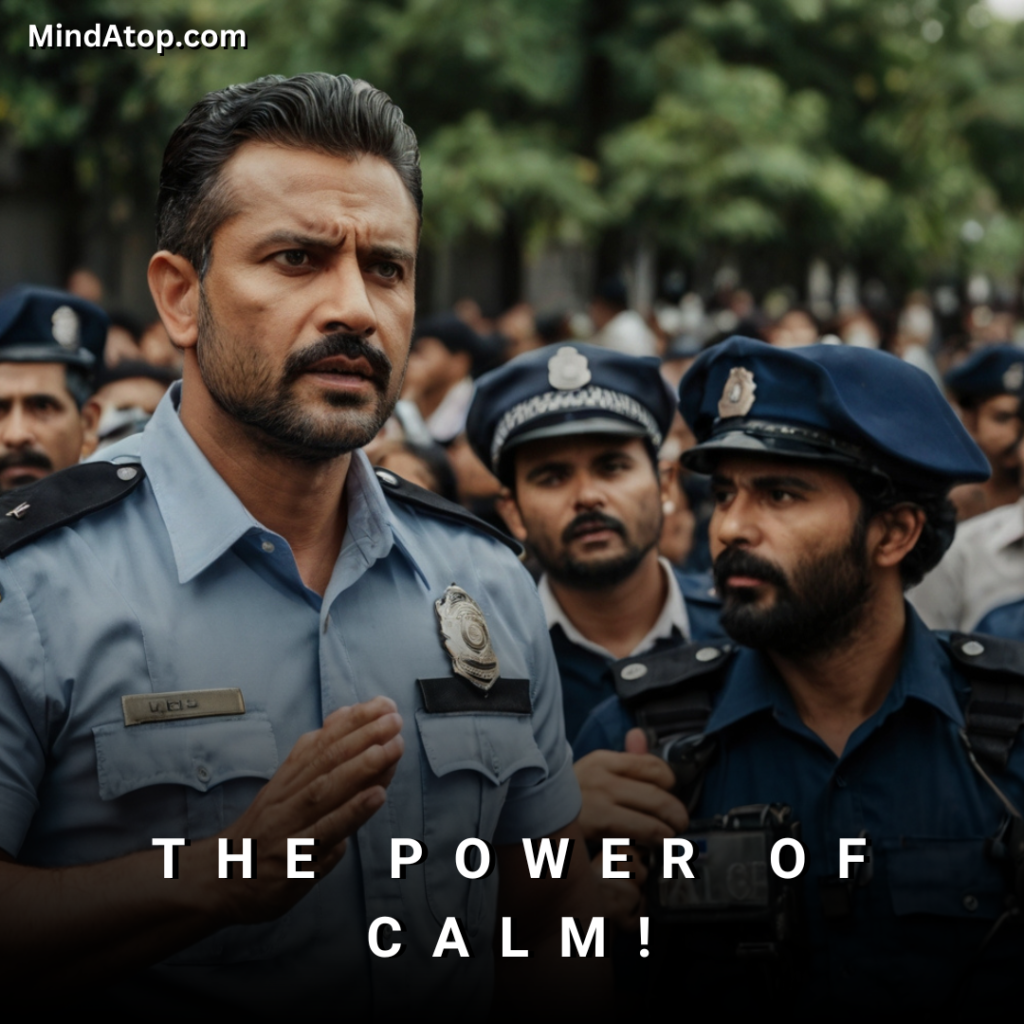Inspector Ajit was known for his gentle nature and calm approach, something rare in the world of law enforcement. His colleagues in the department were often aggressive, believing that power and control were the best ways to handle situations. While they respected him, they didn’t always agree with his methods. “This job requires strength, Ajit,” they would say, “You can’t solve everything with words and patience.” But Ajit always smiled and responded, “True strength comes from within, not from how loud or forceful we are.”
Ajit had earned a reputation for handling difficult situations with remarkable clarity. He valued people and relationships, even when faced with the most challenging of circumstances. He was sharp, quick-thinking, and firm, but his greatest strength was his ability to remain calm, regardless of the situation.
One day, a crisis erupted in the town. A group of angry protesters gathered in front of the police station, furious over a local issue. Tensions were high, and it was clear that things could escalate quickly. The mob shouted slogans, waving banners, and there was an air of restlessness. Ajit and his team were deployed to manage the situation.
As the protesters inched closer, the officers prepared themselves. Some of Ajit’s colleagues, already on edge, suggested using force to disperse the crowd. “We can’t let them advance any further,” one officer said, gripping his baton tightly.
Ajit, however, remained composed. “Let’s not be hasty,” he said, his voice calm but commanding. But as the mob grew more agitated, one of his colleagues lost his temper and yelled at the crowd, causing a surge of movement. It seemed like the situation was about to spiral out of control.
At that moment, Ajit stepped forward, his expression steady. His presence alone was enough to make the crowd pause. Without raising his voice or showing any sign of aggression, he lifted his hand, signalling for silence. Surprisingly, the mob began to slow down, their loud chants turning into murmurs. His colleagues watched in disbelief as the once-unruly crowd seemed to respond to Ajit’s calm energy.
Ajit began to speak, his voice steady and clear. “I understand your concerns,” he said, making eye contact with the leaders of the group. “We are here to listen, not to fight. But for us to have a conversation, we need to calm down. Let’s talk about this without anger.”
The mob, which moments ago had been ready to storm the station, started to quiet down. Ajit’s calm demeanour and his refusal to resort to force began to have an effect. The protesters started to voice their grievances, and Ajit listened carefully, addressing each concern with empathy and patience. He was assertive but never aggressive, making sure that the situation remained under control without any escalation.
Within a short time, the mob’s anger began to dissipate. People who had been shouting just minutes earlier were now engaging in conversation, listening to Ajit and even nodding in agreement. The tension that had filled the air was replaced by an atmosphere of dialogue and understanding.
Ajit’s colleagues, who had been watching in astonishment, couldn’t believe what they were witnessing. They had been prepared for a violent clash, but here was Ajit, de-escalating the entire situation without a single baton raised or a harsh word spoken. It wasn’t power or force that had diffused the situation—it was Ajit’s unshakeable calm and his ability to remain stable even in the most volatile circumstances.
As the protesters dispersed peacefully, Ajit’s colleagues came up to him, still in awe. “How did you manage to do that?” one of them asked. Ajit smiled gently and replied, “Outside situations may vary. People may change. But our thoughts can remain stable. That is the real power.”
From that day on, Ajit’s colleagues saw him in a new light.
They realized that true strength didn’t always come from force, but from the
ability to remain calm, composed, and steady in the face of chaos. And in a
profession where aggression was often seen as power, Ajit had shown them that
there was a greater power within—the power of a stable mind.

